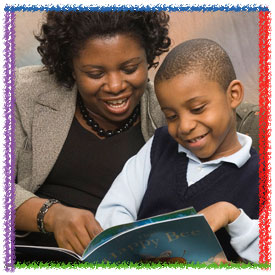As an educator I regularly hear conversations, read discussions and even experience, dialogue about the relationships between a pupil’s educational achievement and ‘the teacher’. Education in my opinion has changed from my pupil days some years ago in that there appears far too much emphasis on what a teacher is doing / not doing than on what a pupil is doing / not doing? However this particular angle is for another time.
But what it does raise is the issue of the school / college environment as a determinant of a child’s educational success or failure.
These are often referred to as ‘Internal factors’ and encompass many elements e.g. processes of labelling, ethno-centric curriculum, and stereotyping in terms of class, gender and ethnicity. Much has been made of these in the educational environment and in my opinion, rightly so. Education should always offer equality of opportunity regardless of who you are.
HOWEVER…regardless of who you are, the education system should ALWAYS be based upon merit; you get out of it exactly what you deserve. This is of course a functionalist argument and in my experience, to some extent has been lost. Personal pupil responsibility has been replaced by targets and funding.
As a sociology student, it is necessary when discussing the internal factors of the school, to evaluate / assess with an examination of ‘External Factors’ i.e. those factors outside the school. The home.
A recent article I read highlighted the important impact a home with bookshelves can have.
 Read the article here: http://gizmodo.com/parents-who-own-bookshelves-raise-kids-who-do-better-in-513115295
Read the article here: http://gizmodo.com/parents-who-own-bookshelves-raise-kids-who-do-better-in-513115295
The article cites research by Stanford and University of Munich which found that British children growing up in a house whose parents owned TWO bookshelves, learned THREE TIMES more than those children whose parents did not! Furthermore the article quotes the research authors as saying…
“Books at home are the single most important predictor of student performance in most countries”.
Now let’s connect this to the two fundamental elements when discussing external factors: money and culture. You need money (or at least enough disposable income) to buy books as well as the cultural understanding to recognise and value the importance of having and reading books (I’m using the tone found within sociology textbooks). If you have these then you are said to have Cultural and Material Capital. If you don’t then you experience cultural and material deprivation.
These are then subsequently attached to one’s socio-economic positioning and the question of who is able to afford books and has the attitude to appreciate them? The answer found in research and textbooks of course is the middle class. And what is the culture of schooling? Middle class (see Bernstein’s Language Codes). Therefore who are going to be the most successful in the education system? The middle class kids.
Of course generalisations are made here…there are always exceptions. I consider myself one of those exceptions having grown up on a council estate within a single parent home.
Nevertheless what I hope this discussion does highlight is how a child’s educational success should never only be about what the teacher does / doesn’t do, but also about what the pupil does / doesn’t do and the foundation for this is found within the home. Genetics, psychologists will argue, are just as important the building blocks as socialisation…but I leave that up to you to read around!

